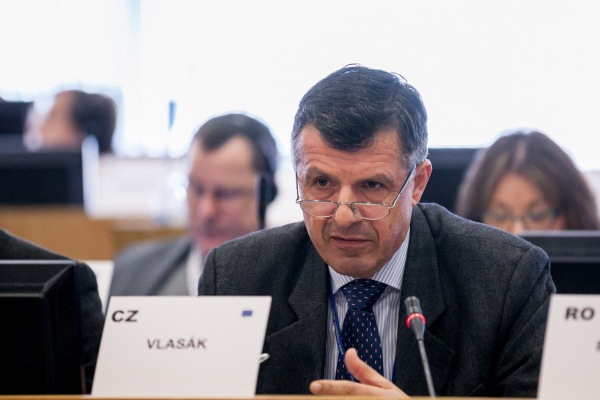Oldřich Vlasák, ECR Vice-President: Clean energy transformation will not happen overnight

In his speech at the July plenary session of the European Committee of the Regions, the ECR's vice-president, Oldřich Vlasák, outlined the group's key messages on climate change. The debate was attended by the European Commissioner for Climate Action, Miguel Arias Cañete. Mr Vlasák, who also serves as a councillor for the city of Hradec Králové in the Czech Republic, said that the Commission needed to be more realistic about the pace of change in some parts of Europe. Furthermore, he underlined the need for more action to prevent natural disasters.
Mariusz Skiba, deputy mayor of Katowice in Poland, also took part in the debate, which took place ahead of the 24th Conference of the Parties to the United Nations Framework Convention on Climate Change (COP 24) which will take place in Katowice on 3-14 December.
Mr Vlasák called on the Commission to respect the diverse EU energy landscape, pointing out that some regions and cities will need more time to successfully transition to clean alternative energy sources.
He explained that "countries like the Czech Republic and Poland will not be in a position to phase out coal completely in the short term". He also asked the Commission "not to forget that the transformation of the Ruhr, the former coal-mining region in Germany, took more than 60 years, and in our part of the continent we started reducing emissions only after 1989 when the Berlin Wall fell".
Mr Vlasák warned that phasing out coal entirely in the short run would lead to "blackouts and the loss of thousands of jobs". Furthermore, looking at the wider context, he observed that the Czech Republic, in spite of having received bad press for its coal industry, managed to cut its emissions by 37% in 2014 in comparison to the levels detected in 1990, while at the same time enabling the country's economy to grow.
The vice-president of the ECR also spoke about the link between the increased frequency and intensity of natural disasters hitting our cities and regions and climate change. It was therefore necessary, Mr Vlasák pointed out, to "focus more on increasing our disaster resilience as part of our climate action work".

